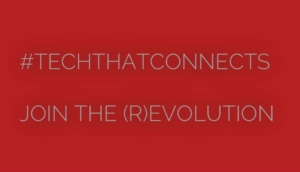In late January after 151 days of trial, the last day of evidence was in on the Saik’uz/Stellat’en First Nations claim, giving our (truly) fearless leader, Christy, a break from court until closing argument in April.
This e-trial has been nothing short of revolutionary for Reportex, not only in terms of the custom e-trial platform that Brandan and his team so successfully implemented and that Jake facilitated but also in terms of the incorporation of virtual elements made necessary as a result of the pandemic.
We recently caught up with Brandan and Jake to ask them a few questions as they reflected on 151 days of the first-ever fully supported e-trial in British Columbia!
151 days of a fully supported e-trial sounds intense. How are you feeling?
Brandan: Relieved and excited but mostly extremely proud. This must be the feeling that parents have when their kids win an award or take their first steps. A ton of work was put into this solution, and I am thrilled that it performed so well and was embraced by so many.
Jake: In one word — satisfied! Given the amount of technological solutions we had to implement — from the computer setup to the shared document repository for exhibits and other documents to hosting remote witnesses and having Christy provide realtime reporting remotely — I’m very happy it went so smoothly.
Prior to this trial a 100 percent fully supported e-trial was unheard of in British Columbia. How did you prepare for such a feat?
Brandan: Well, the clients were very clear about what they wanted this platform to do, but since we didn’t have an existing prototype, I had to take counsel’s ideas and make them a reality. I spent weeks — months, actually — researching, developing and testing various tech options, followed by sourcing, building and installing the entire platform in the courtroom. So my final solution for this trial was actually more of an invention!
Jake: I just tried to come into it with an open mind. When I joined Reportex, the trial was already underway but paused due to the pandemic. When it resumed, all the systems were already in place, so for me it was merely a matter of settling into the existing workflow, determining what was working and identifying what needed improvement.
What were the unique challenges of the e-trial, and how were they solved?
Brandan: The Vancouver courthouse does not currently have an established protocol for marking and managing exhibits in a fully digital manner; therefore the biggest challenge was creating a solution for digital exhibits that meshed with the existing systems and workflow of the court. We had to identify best practices for naming, indexing and storing the digital data for both the clerk and the registry, and through this process we developed and refined (and refined and refined) procedures that allow digital exhibits to be preserved with the same integrity as physical exhibits. This was a collaborative effort that involved some very creative (and patient!) court clerks and exhibit managers, and we ultimately developed a very simple, streamlined process that I hope will be the gold standard for e-trials until the Vancouver courthouse has the capacity to manage digital exhibits.
Jake: One of the unique challenges of the trial was that due to the pandemic some of the witnesses had to testify virtually. While the courthouse has videoconferencing equipment available, it doesn’t integrate seamlessly with our platform, which was designed to run independently of the courthouse network, for security purposes. So we repurposed the e-trial SMART Board (a 65-inch touch-sensitive LCD screen that witnesses use to mark up exhibits), patched into the DARS audio and voila! The witness could be seen and heard by everyone in the courtroom, and their testimony was captured directly on DARS. With a few more refinements this setup also allowed Christy to provide remote realtime to everyone in the courtroom, which has never been done before in British Columbia. It was truly revolutionary.
Another challenge was determining how best to handle the thousands of digital trial documents that would be used (we ultimately marked roughly 770 exhibits). The parties required private folders for their own team’s use as well as shared folders so they could access the exhibits and other common trial materials. The clerk and the court required a separate silo for accessing their copies of the documents. Plus all the data needed to be physically stored in Canada, and we needed offline access in the (unlikely) event of an internet outage. I’m sure there were some bumps in the road in the early days, but by the time I joined the trial, the court and all parties were comfortable with the system, and it worked like a well-oiled machine.
What are your top three takeaways from this e-trial?
Brandan:
- Clients want an experience they can relate to. The so-called “smoke and mirrors” and fancy tech is distracting and cumbersome for experienced trial counsel who, understandably, don’t want to overhaul the workflow and style they’ve spent years crafting.
- Never underestimate the ability of a very determined judge to learn, embrace and ultimately thrive in an e-trial environment. Our self-proclaimed pen and paper judge was provided with virtually no paper in this trial, and while there was the odd technical glitch over the course of 151 days, the downtime was minimal, and he rallied like a total pro.
- The fact that we were able to integrate virtual services into this e-trial with minimal downtime shows just how much potential and flexibility the right tech has to truly connect people in litigation.
Jake:
- As the e-trial technician for the bulk of this trial, one of the most important things I learned early on was not to panic! With the amount of technology involved, things will inevitably go sideways now and then, but the solution is often a simple one. Fortunately, this e-trial had complete buy‑in from all counsel and the court, and they all understood that the minimal downtime we did experience was a drop in the bucket compared to the time that would have been spent preparing, locating and handling the boatload of binders that would have filled the courtroom and judge’s bench if this had been a paper trial. Plus I was in the courtroom every day to troubleshoot any issues that arose, and Brandan was even able to log in remotely, if needed.
- E-trials really are the way of the future. As an attorney myself (I practised in New York), I can’t tell you how annoying it is to haul bankers boxes full of documents to and from court every day, shuffling through exhibits searching for the right cross-examination document and relying on temperamental photocopiers (and, let’s be honest, hard-working litigation staff who were understandably frustrated by temperamental photocopiers) to prepare six copies of a 700‑page document during the lunch recess. Simply placing everything on a computer eliminates these inefficiencies and allows counsel to focus more on strategy and less on logistics.
- Organization is key. Every e-trial is custom-designed to the needs of the parties and the court, but once the daily and weekly protocols are established, as long as you stay the course, there will be smooth sailing.
Looking to the future, what in your opinion does the type of technology you utilized for this e-trial mean for our legal system?
Brandan: I see the potential for complete courtroom/tech integration and maybe even new smaller spaces that are dedicated to virtual proceedings. Avoiding the need for witnesses and counsel to travel long distances to appear at trial will not only save money but also decrease delays and increase efficiency. This all adds up to an overall improvement in access to justice, which is at the forefront of everyone’s mind in this industry.
Jake: I echo Brandan’s comments. In addition to managing a growing e-trial demand, Reportex is also facilitating a dramatically increased volume of remote witness connections to courthouses throughout British Columbia, and we are currently working with courthouses in Alberta to find solutions for our BC clients who also practise in Alberta. I sincerely hope that our legal system will continue to evolve and to embrace technology, which allows litigants to access flexible, cost-effective ways of adjudicating their disputes. It has been argued that e-trials can reduce trial times by up to half simply through implementing an electronic record, and the convenience of having all case materials available at their fingertips affords counsel greater focus on advocacy. Additionally I believe that many judges will come to prefer e-trials as it eliminates the binders and potential for misplaced documents and allows them more efficiency in preparing their reasons. All in all, it’s just a smarter way to litigate.










